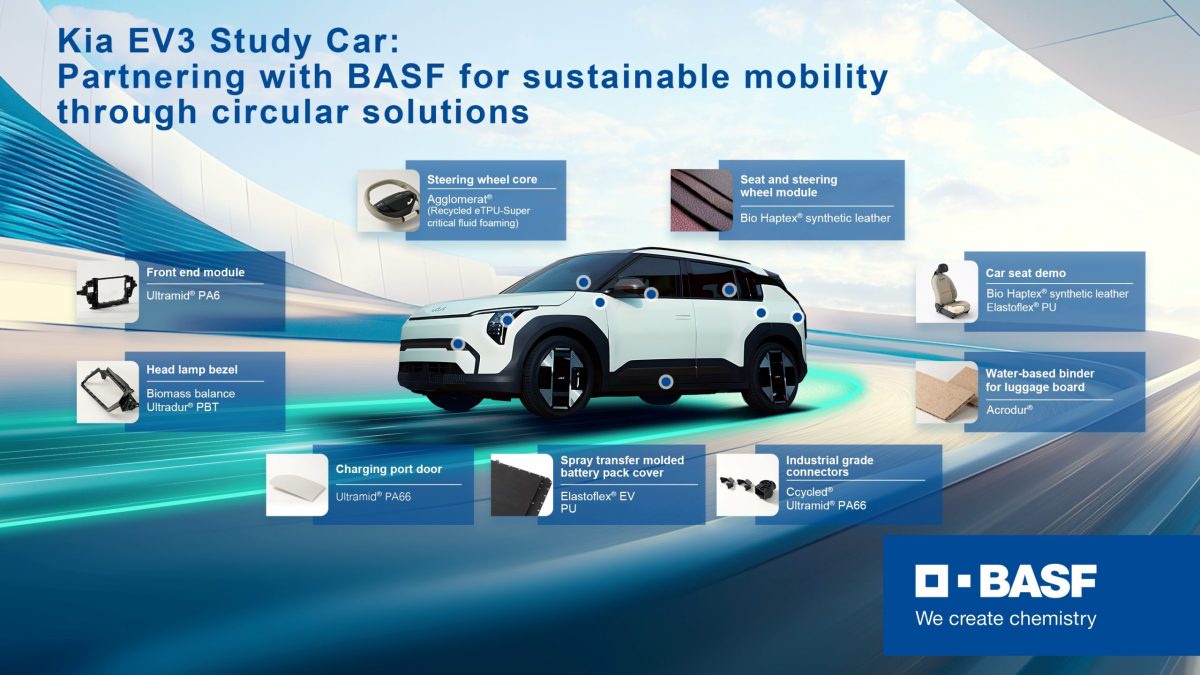The Kia EV3 Study Car features 8 sustainable materials from BASF in various parts and components of the car. These material solutions included Ccycled(R) & Biomass Balance (BMB) Engineering Plastics (Ultramid(R) and Ultradur(R)), Bio-based, Ccycled(R) Polyurethanes (Elastoflex(R)), Polyisocyanurate (PIR) Infinergy(R) (E-TPU) in Super Critical Foaming (SCF), Bio PU synthetic leather (Haptex(R)), and water-based binder (Acrodur(R)), and contributed to the overall CO2 carbon emission reduction.
"We are delighted for the opportunity to work with Hyundai-Kia Group again for what is now our 3rd concept car*," said Andy Postlethwaite, Senior Vice President, Performance Materials Asia Pacific. "This project exemplifies BASF's ongoing efforts to support the automotive industry's transition to more sustainable practices and to provide innovative solutions that meet the evolving needs of consumers and manufacturers alike."
Kia will present the Kia EV3 Study Car at the Seoul Mobility Show (3-13 April). Sustainable solution applied in the Kia EV3 Study Car will be showcased at PU TECH (9-11 April) and CHINAPLAS (15-18 April) in 2025.
* The previous concept cars developed by Hyundai in collaboration with BASF included:
- the RN30 Concept Car, a high-performance vehicle that combined motorsport-inspired looks with a series of innovative technologies was unveiled in 2016. The advanced materials by BASF contributed to the car's design flexibility, as well as lightweight structure and durability, which enhanced its performance and safety and efficiency.
- the i-flow Concept Car which was unveiled in 2010, represented a forward-thinking approach to automotive design and sustainability. BASF provided lightweight plastics, innovative coatings, and energy-efficient solutions that played a pivotal role in making the i-flow a showcase of sustainable automotive design.
Source: BASF (Thai)
